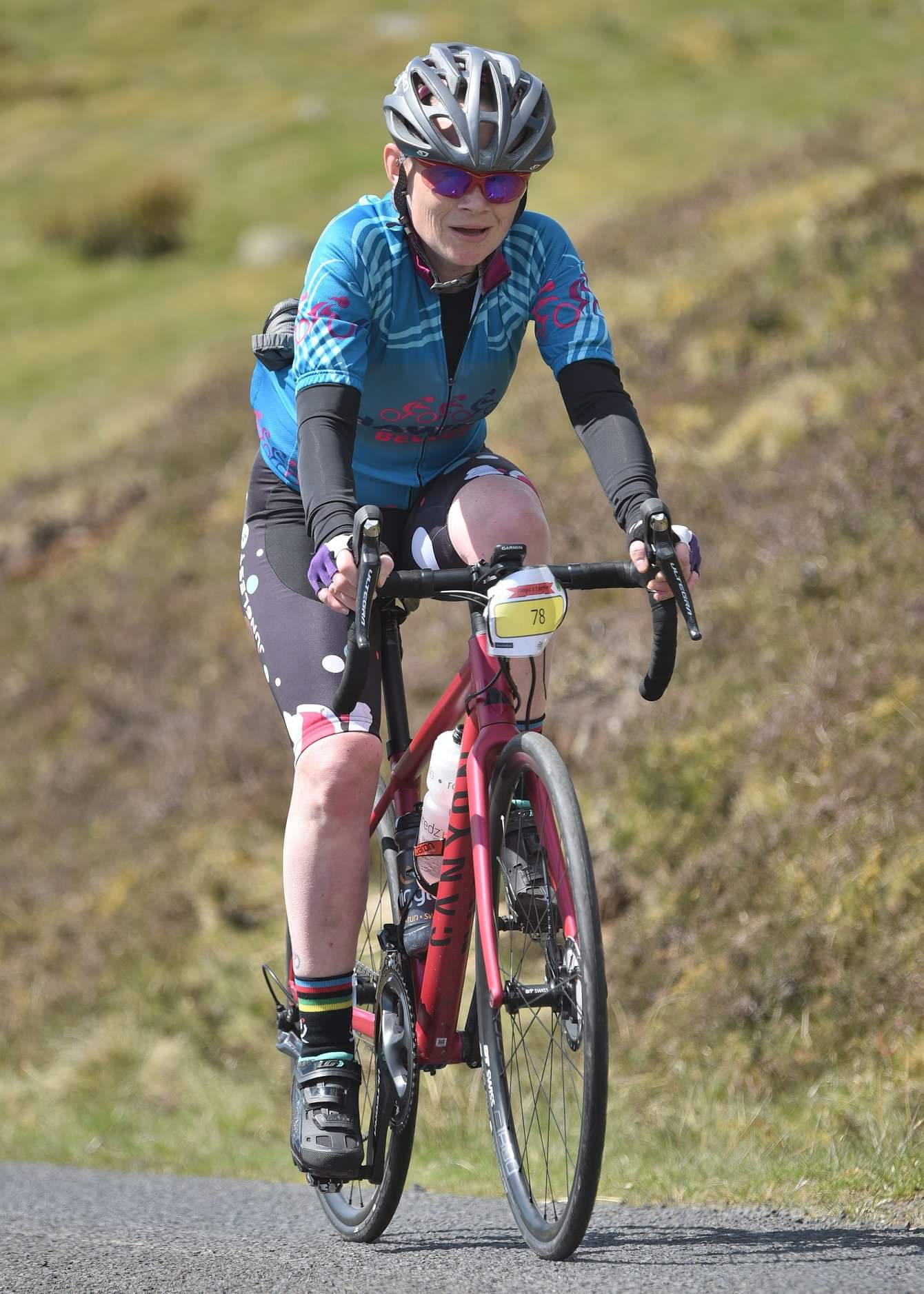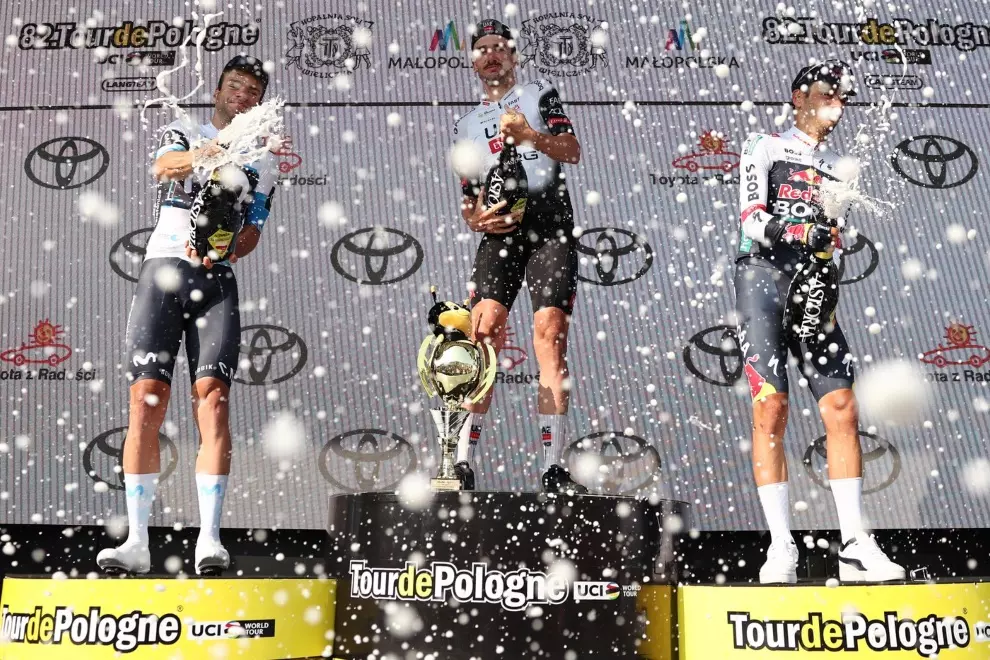After years of struggling with an eating disorder that developed during a turbulent relationship, Elaine Scott finally feels in control and is working towards a healthy relationship with food. An unexpected champion of this recovery? Her bicycle. Although overcoming an eating disorder takes hard work and comprehensive treatment, seeing food as fuel for riding has proven to be a game changer in Elaine’s progress.
Entering a sport in which the pressure to be thin can sometimes have a negative impact on the self-image of riders, We Love Cycling talked to Elaine about how cycling has changed her feelings about her body, how she regulated her training regime, and what she is doing now to make sure she maintains balance.
When did you first realize that cycling might be able to help you overcome your eating disorder?
I hadn’t ridden a bike since I was a teenager until I met my current partner just over a year ago. I was instantly mesmerized by the speed of the cyclists and I also noticed that there were a lot of women my age taking part, which gave me the confidence to get on a bike again. I was instantly hooked.
I quickly came to realise the importance of eating before a ride. There was a particular hill that I kept trying to ride up but would only get halfway and would have to give up. It wasn’t until my partner asked what I eat before a ride that something clicked. I needed to put fuel in my body to get up that hill. That’s what I did and, the next time I tried, I made it to the top.
Thanks to cycling I now know the importance of eating properly and have learnt to enjoy food without the feeling of guilt.
Did you struggle with the temptation of pushing yourself too hard on your bike or depriving yourself of food after a ride?
When I first started cycling, although my anorexia had improved, I was still very much controlling my calories and my portion sizes. I would still scrutinise my body and worry about putting on weight. But after being out on the bike, I found I was really hungry and slowly my portion sizes increased. The first time I went out for a meal and eat everything on my plate was a very proud moment. I’ve learnt to accept my body and it no longer bothers me that I have gained weight as well as muscle.

Pushing myself too hard on the bike is always a struggle. I always want to go farther and faster. I’m glad to have my partner there to help me to see that rest is important and that without it, I could end up getting run down and ill.
What kind of support group did you have around you during this journey?
The love of my partner and my son really helps. They remind me to keep a balance between cycling and other parts of my life.
I am also a member of a local Breeze women’s cycling group. We have a great laugh together and just enjoy being out on our bikes. It helps me to remember why I got into cycling and that it’s not all about training. Through cycling, I have met lots of new people and made many great friendships.
In some cases, cycling has actually contributed to the development of an eating disorder. How do you talk yourself through the pressure to do light on your bike?
My eating disorder developed during a turbulent time in my life, when I felt I needed something that I could control. I can understand though how cycling can contribute to an eating disorder. People often comment on the fact that I am petite and slim, and that’s why I am fairly quick up hills. I do worry that if I was to put on weight it would affect my form.

I can also see how people look at how slim professional cyclists are and aspire to be like them. It could easily spiral into an unhealthy obsession. I think it’s important to remember that professionals have coaches, nutritionists and private chefs ensuring they are getting the correct nutrients that the body needs to perform at that level.
What do you think about the cycling industry and the kind of marketing that is used to sell bikes and gear (especially targeted towards women)?
I find that it is very much like the fashion world, it’s all about certain brands and looking the right way. To a certain extent, there is an elitism about the cycling world, which could alienate some people. It should be about enjoying yourself, not what bike you ride or what brand you wear. Personally, I get a lot of my cycling gear second-hand as I like to be quirky and different. I’ve spent so much of my life trying to be ‘normal’ and fit in. These days, I just want to enjoy being me.
Would you have any advice for cyclists who love the sport but are feeling an increased pressure to be thin or are devoting too much energy to monitoring calorie intake?
I think the most important thing to remember is that if you don’t put the fuel into your body, you’re not going anywhere. I know that I am bad for checking how many calories I’ve burnt at the end of a ride, but it no longer stops me from having the slice of cake I want. Cycling is about enjoying yourself and there is definitely no enjoyment in limiting your calorie intake or obsessing over your weight.

If you feel that you are developing an eating disorder or obsessively exercising, it is important to talk to someone. It might be the hardest thing you ever do but it may save your life. One of my biggest regrets about my anorexia is that I have severe osteoporosis, for which I will have to take medication for the rest of my life. I have also been left infertile. Luckily, I had my son before I became ill.
You have certainly come a long way. What are your cycling goals going forward?
In the short-term, I hope to make it through my first 200-km Audax. Towards the end of the season, I’d like to take part in a few climbing races. Then I’m looking to improve my fitness and skills over the autumn and winter, so I can start racing next year. But really what’s most important is staying healthy mentally and physically. I want to continue enjoying cycling and sharing my passion with my partner.
A big thank you to Elaine for her honesty and bravery in sharing her story. Cycling can be a great tool to overcome challenges, but if you ever start to feel that your relationship to exercise, or food has become unhealthy, know that there are many resources available.
BeatEatingDisorders.org and NationalEatingDisorders.org both offer online help and can assist you in finding low-cost treatment in your area.






